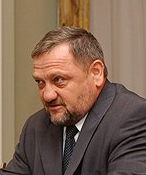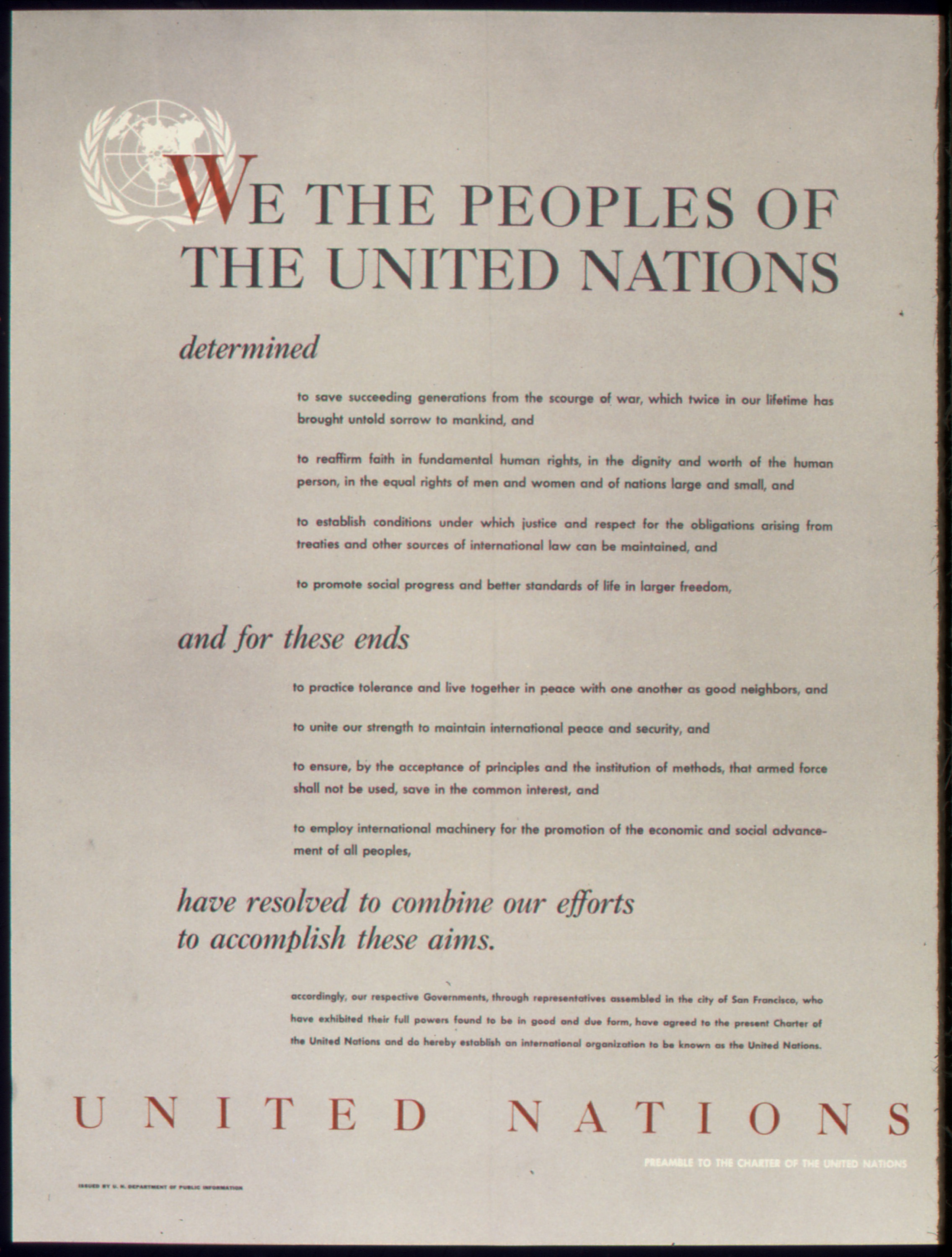|
Constitution Of The Chechen Republic
The Constitution of the Chechen Republic (russian: Конституция Чеченской Республики) is the basic law of the Chechen Republic, Russia. It was adopted on 23 March 2003 in a referendum. Background The Constitution of the Chechen Republic was adopted on 23 March 2003. Changes in the Constitution of the Chechen Republic affect a number of articles of the Law of the Republic, the Chechen Republic concerning the presidential elections, the term of office of the President and Parliament, as well as the provisions of the legislative bodies. It was planned to increase the terms of office of the president and members of parliament of the Chechen Republic from four to five years. Overview It Consists of: *Preamble *2 sections *9 chapters *112 articles Amendments The need to amend and revise certain provisions of the Constitution of the Chechen Republic arose from the fact that since the adoption in March 2003 referendum on the Constitution of the Chechen Re ... [...More Info...] [...Related Items...] OR: [Wikipedia] [Google] [Baidu] |
Chechnya
Chechnya ( rus, Чечня́, Chechnyá, p=tɕɪtɕˈnʲa; ce, Нохчийчоь, Noxçiyçö), officially the Chechen Republic,; ce, Нохчийн Республика, Noxçiyn Respublika is a republic of Russia. It is situated in the North Caucasus of Eastern Europe, close to the Caspian Sea. The republic forms a part of the North Caucasian Federal District, and shares land borders with the country of Georgia to its south; with the Russian republics of Dagestan, Ingushetia, and North Ossetia-Alania to its east, north, and west; and with Stavropol Krai to its northwest. After the dissolution of the Soviet Union in 1991, the Checheno-Ingush ASSR split into two parts: the Republic of Ingushetia and the Chechen Republic. The latter proclaimed the Chechen Republic of Ichkeria, which sought independence. Following the First Chechen War of 1994–1996 with Russia, Chechnya gained ''de facto'' independence as the Chechen Republic of Ichkeria, although ''de jure'' it rem ... [...More Info...] [...Related Items...] OR: [Wikipedia] [Google] [Baidu] |
Referendum
A referendum (plural: referendums or less commonly referenda) is a direct vote by the electorate on a proposal, law, or political issue. This is in contrast to an issue being voted on by a representative. This may result in the adoption of a new policy or specific law, or the referendum may be only advisory. In some countries, it is synonymous with or commonly known by other names including plebiscite, votation, popular consultation, ballot question, ballot measure, or proposition. Some definitions of 'plebiscite' suggest it is a type of vote to change the constitution or government of a country. The word, 'referendum' is often a catchall, used for both legislative referrals and initiatives. Etymology 'Referendum' is the gerundive form of the Latin verb , literally "to carry back" (from the verb , "to bear, bring, carry" plus the inseparable prefix , here meaning "back"Marchant & Charles, Cassell's Latin Dictionary, 1928, p. 469.). As a gerundive is an adjective,A gerundiv ... [...More Info...] [...Related Items...] OR: [Wikipedia] [Google] [Baidu] |
Constitution
A constitution is the aggregate of fundamental principles or established precedents that constitute the legal basis of a polity, organisation or other type of Legal entity, entity and commonly determine how that entity is to be governed. When these principles are written down into a single document or set of legal documents, those documents may be said to embody a ''written constitution''; if they are encompassed in a single comprehensive document, it is said to embody a ''codified constitution''. The Constitution of the United Kingdom is a notable example of an ''uncodified constitution''; it is instead written in numerous fundamental Acts of a legislature, court cases or treaties. Constitutions concern different levels of organizations, from Sovereign state, sovereign countries to Company, companies and unincorporated Club (organization), associations. A treaty which establishes an international organization is also its constitution, in that it would define how that organiza ... [...More Info...] [...Related Items...] OR: [Wikipedia] [Google] [Baidu] |
Presidential Election
A presidential election is the election of any head of state whose official title is President. Elections by country Albania The president of Albania is elected by the Assembly of Albania who are elected by the Albanian public. Chile The president of Chile is elected by the Chilean people for a four-year term. Sitting presidents are not allowed to run for reelection, but former presidents may do so. China The president and vice president of China, are elected by the National People's Congress (NPC) on the nomination of the NPC Presidium. In practice, the presidential candidate is chosen through an informal process within the Chinese Communist Party (CCP), which is headed by the CCP general secretary. Czech Republic President of the Czech Republic is elected for a five-year term. Prior 2013, the election was indirect by the Parliament. The first direct election was held in 2013. El Salvador El Salvador elects its head of state – the president of El Salvador – dire ... [...More Info...] [...Related Items...] OR: [Wikipedia] [Google] [Baidu] |
Head Of The Chechen Republic
The Head of the Chechen Republic or Head of Chechnya (russian: Глава Чеченской Республики, italic=yes, ce, Мехкада Нохчийн Республика; formerly President of the Chechen Republic or President of Chechnya until 5 March 2011) is the highest office within the Politics of Chechnya, political system of the Chechnya, Chechen Republic, as Head of State and Head of Government of Chechnya. The office was instituted in 2003 during the course of the Second Chechen War, when the Politics of Russia, Russian federal government regained control over the region and after a constitutional referendum approved the current Constitution of the Chechen Republic. Eligibility According to the article 66 of the Constitution of the Chechen Republic, a citizen of Russia, no younger than thirty years old, may be elected Head. The term is for five years, with no limits on serving multiple terms (prior to the 2007 Chechen constitutional referendum, 2007 constitut ... [...More Info...] [...Related Items...] OR: [Wikipedia] [Google] [Baidu] |
Parliament
In modern politics, and history, a parliament is a legislative body of government. Generally, a modern parliament has three functions: Representation (politics), representing the Election#Suffrage, electorate, making laws, and overseeing the government via hearings and inquiries. The term is similar to the idea of a senate, synod or congress and is commonly used in countries that are current or former monarchies. Some contexts restrict the use of the word ''parliament'' to parliamentary systems, although it is also used to describe the legislature in some presidential systems (e.g., the Parliament of Ghana), even where it is not in the Legal name, official name. Historically, parliaments included various kinds of deliberative, consultative, and judicial assemblies, an example being the French medieval and early modern parlements. Etymology The English term is derived from Anglo-Norman language, Anglo-Norman and dates to the 14th century, coming from the 11th century Old ... [...More Info...] [...Related Items...] OR: [Wikipedia] [Google] [Baidu] |
Legislature
A legislature is an assembly with the authority to make law Law is a set of rules that are created and are enforceable by social or governmental institutions to regulate behavior,Robertson, ''Crimes against humanity'', 90. with its precise definition a matter of longstanding debate. It has been vario ...s for a Polity, political entity such as a Sovereign state, country or city. They are often contrasted with the Executive (government), executive and Judiciary, judicial powers of government. Laws enacted by legislatures are usually known as primary legislation. In addition, legislatures may observe and steer governing actions, with authority to amend the budget involved. The members of a legislature are called legislators. In a democracy, legislators are most commonly popularly Election, elected, although indirect election and appointment by the executive are also used, particularly for bicameralism, bicameral legislatures featuring an upper chamber. Terminology ... [...More Info...] [...Related Items...] OR: [Wikipedia] [Google] [Baidu] |
President (government Title)
President is a common title for the head of state in most republics. The president of a nation is, generally speaking, the head of the government and the fundamental leader of the country or the ceremonial head of state. The functions exercised by a president vary according to the form of government. In parliamentary republics, they are usually, but not always, limited to those of the head of state and are thus largely ceremonial. In presidential, selected parliamentary (e.g. Botswana and South Africa), and semi-presidential republics, the role of the president is more prominent, encompassing also (in most cases) the functions of the head of government. In authoritarian regimes, a dictator or leader of a one-party state may also be called a president. The titles "Mr. President" and Madam President may apply to a person holding the title of president or presiding over certain other governmental bodies. "Mr. President" has subsequently been used by governments to refer to thei ... [...More Info...] [...Related Items...] OR: [Wikipedia] [Google] [Baidu] |
Parliament
In modern politics, and history, a parliament is a legislative body of government. Generally, a modern parliament has three functions: Representation (politics), representing the Election#Suffrage, electorate, making laws, and overseeing the government via hearings and inquiries. The term is similar to the idea of a senate, synod or congress and is commonly used in countries that are current or former monarchies. Some contexts restrict the use of the word ''parliament'' to parliamentary systems, although it is also used to describe the legislature in some presidential systems (e.g., the Parliament of Ghana), even where it is not in the Legal name, official name. Historically, parliaments included various kinds of deliberative, consultative, and judicial assemblies, an example being the French medieval and early modern parlements. Etymology The English term is derived from Anglo-Norman language, Anglo-Norman and dates to the 14th century, coming from the 11th century Old ... [...More Info...] [...Related Items...] OR: [Wikipedia] [Google] [Baidu] |
Preamble
A preamble is an introductory and expressionary statement in a document that explains the document's purpose and underlying philosophy. When applied to the opening paragraphs of a statute, it may recite historical facts pertinent to the subject of the statute. It is distinct from the long title or enacting formula of a law. In parliamentary procedure using Robert's Rules of Order, a preamble consists of "Whereas" clauses that are placed before the resolving clauses in a resolution (formal written motion). However, preambles are not required to be placed in resolutions. According to Robert's Rules of Order, including such background information may not be helpful in passing the resolution. Legal effect While preambles may be regarded as unimportant introductory matter, their words may have effects that may not have been foreseen by their drafters. France In France, the preamble to the constitution of the Fifth Republic of 1958 was considered ancillary and therefore non-bin ... [...More Info...] [...Related Items...] OR: [Wikipedia] [Google] [Baidu] |
Russian Federation
Russia (, , ), or the Russian Federation, is a List of transcontinental countries, transcontinental country spanning Eastern Europe and North Asia, Northern Asia. It is the List of countries and dependencies by area, largest country in the world, with its internationally recognised territory covering , and encompassing one-eighth of Earth's inhabitable landmass. Russia extends across Time in Russia, eleven time zones and shares Borders of Russia, land boundaries with fourteen countries, more than List of countries and territories by land borders, any other country but China. It is the List of countries and dependencies by population, world's ninth-most populous country and List of European countries by population, Europe's most populous country, with a population of 146 million people. The country's capital and List of cities and towns in Russia by population, largest city is Moscow, the List of European cities by population within city limits, largest city entirely within E ... [...More Info...] [...Related Items...] OR: [Wikipedia] [Google] [Baidu] |







.jpg)
